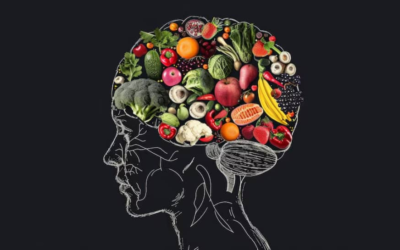Starmer Emerges From UK Welfare Fight Weaker and Billions in Red

Keir Starmer dramatically abandoned his flagship welfare reforms to avoid a historic defeat, leaving the UK prime minister’s authority badly damaged and his government facing a widening fiscal hole to fill.
The government made a last-ditch decision Tuesday to drop the most contentious part of planned welfare changes, which would have restricted benefit payments to some disabled people from next year and had caused widespread anger among Labour MPs. While that allowed Starmer to avoid a humiliating loss to rebels in his own party, it came at the cost of giving up all of the savings initially sought from the reforms.
The climbdown just 90 minutes before Members of Parliament were due to vote on an amendment that sought to sink the legislation marks a fresh low for Starmer and Chancellor of the Exchequer Rachel Reeves, who is increasingly expected to have to raise taxes at her budget in the autumn to cover the fiscal shortfall.
The £5 billion welfare reversal follows a £1.25 billion U-turn on cutting winter fuel payments to pensioners last month, raising doubts about whether ministers can get spending cuts past their own party, whose backbenchers are increasingly worried about the electoral threat posed by Nigel Farage’s poll-leading populist Reform UK.
Starmer and Reeves are “weakened,” said Anand Menon, director of the UK in a Changing Europe think tank. “There are real questions over their management of the parliamentary Labour party,” Menon said.
The government had already announced a partial climbdown on some of the bill’s provisions as ministers sought to peel away some of the 126 publicly declared rebels — comfortably more than the 83 needed to defeat the government in conjunction with opposition parties. But the threat of a sizable rebellion remained, especially after the House of Commons Speaker, Lindsay Hoyle, selected Labour backbencher Rachael Maskell’s wrecking amendment.
Labour backbenchers didn’t hold back in the debate, saying the measures would hurt disabled people and urging the government to pull the legislation. Moving her amendment, Maskell called the cuts “Dickensian,” while Emma Lewell said they would plunge 150,000 people into poverty. Richard Burgon said that a vote in favor of the bill by any Labour MP would “hang like an albatross around their necks.”
Amid such strength of feeling, Starmer’s administration ended up making the vital concession, accepting that any changes would come after a review by social security minister Stephen Timms conducted alongside disability charities and advocates. That peace offering was pushed by Deputy Prime Minister Angela Rayner, who had led negotiations with Labour rebels in recent days. It came because the government feared losing the vote, according to a person familiar with the matter.
The prime minister last week dismissed the rebel voices as “noises off,” before acknowledging in an interview with The Sunday Times that he had been too distracted by events abroad, including the NATO summit in The Hague, to focus on the rebellion.
A successful rebellion would have marked the first time in almost four decades that any government had suffered a defeat at this stage of a bill’s progress, raising questions about Starmer’s leadership. In the end, the legislation passed to its next stage of parliamentary scrutiny by 335 votes to 260, though Starmer still saw 49 Labour MPs — more than 10% of his cohort — vote against him.
Nevertheless, the U-turn itself caused consternation and confusion, with MPs unsure of what remained of the original bill. “What are we supposed to be voting on tonight?” Labour backbencher Andy McDonald asked in the Commons.
“This is outrageous,” said Ian Lavery, one of the rebel Labour MPs, after the concession was announced. “This is a hotchpotch of a bill that means nothing to nobody.”
One Labour MP, who voted with the government, described the party leadership as incompetent, while another member of the government remarked that it looked like a return to the chaotic days of crunch Brexit votes under the Conservatives — when then Prime Minister Theresa May led a minority government, in stark contrast to Starmer’s working majority of 165.
“It is difficult to see how this is the right way to make effective, serious welfare policy,” Labour backbencher Neil Duncan-Jordan told Bloomberg. “The bill should have been withdrawn and revisited. What’s been left is a rather meaningless piece of legislation.”
Reeves and Starmer will be keen to avoid the sort of market turmoil that hit in January when with gilt yields rose to their highest since the financial crisis in 2008 and the pound hit its lowest in 14 months amid concern in the financial markets about the government’s fiscal deficit.
Gilt markets were closed when the government made its final concession late Tuesday, and there was no movement in the pound. Still, there are concerns in 10 Downing St. about the potential for an adverse market reaction to the perception of the government taking a looser fiscal stance, according to a person familiar with the matter.
The botched handling of the welfare reforms also raises the prospect of potential resignations. Asked by the BBC if her position was tenable, Work and Pensions Secretary Liz Kendall, who has led the bill in Parliament, said listening to the dissenters had been the right thing to do.
For her part, Reeves faces an increasingly difficult task at her autumn budget to meet her self-imposed fiscal rules. As well as the cost of the recent policy reversals, she faces the prospect of weaker growth forecasts from the Office for Budget Responsibility due to downgrades to estimates for UK productivity.
After leaving herself a historically slim £9.9 billion buffer against her own budget rules at her last economic update in the spring, it’s now increasingly likely the chancellor will find herself in the red, needing to turn to tax hikes or spending cuts at the budget in the fall to stabilize the public finances. Those tax increases may in turn impact the Bank of England’s outlook for monetary easing.
“Higher UK taxes, combined with weak underlying GDP growth and emerging labor market slack, could force the BOE to cut the policy rate more aggressively than anticipated,” said Brown Brothers Harriman & Co. Strategists including Win Thin.
Another option for Reeves would be to loosen her fiscal rules, an idea that is popular among some Labour MPs and business leaders. While Reeves has repeatedly said her fiscal rules are non-negotiable, she twice declined to repeat that line when asked in the House of Commons earlier on Tuesday.
“The economic credibility of this government has collapsed,” Helen Whately, the main opposition Conservative Party’s spokesperson for work and pensions, said in a statement. “In an act of cowardice, Keir Starmer has put Party before country. He cannot take the tough decisions necessary.”
With assistance from Greg Ritchie, Alex Wickham, Hillary Boye Doku and Freya Jones.
This article was generated from an automated news agency feed without modifications to text.






